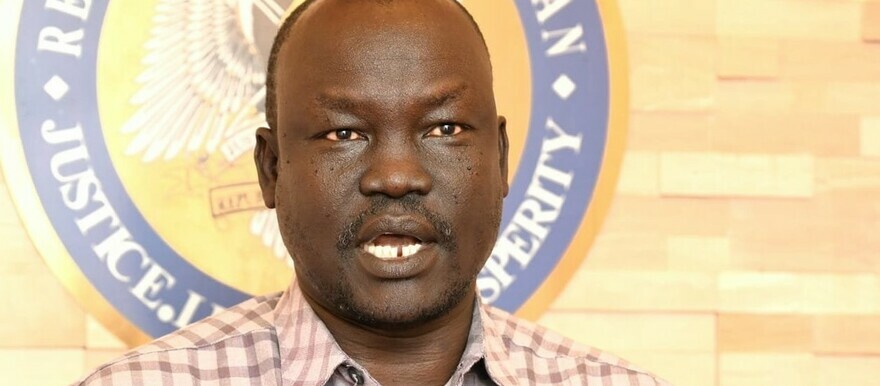South Sudan’s Minister of Humanitarian Affairs has issued a stern warning on Thursday, cautioning returnees against selling the aid they recently received from the Kingdom of Saudi Arabia.
Albino Akol Atak said that the relief items are intended to assist the returnees directly and should not be circulated in the market. He underscored that anyone found selling these items would be held accountable by the law.
“This relief from Saudi is not meant for trading or selling; it is solely meant to directly support those in need, as we can clearly see that they are in desperate need of these items. Therefore, we have cautioned them against allowing these relief items to enter the market,” Minister Akol said.
“Our policy is to use these relief items to assist the most vulnerable individuals directly, and they are not for sale or any other purposes aside from supporting the returnees,” Akol added.
Last week, the Ministry of Humanitarian Affairs received five shipments comprising food and non-food items such as a donation from Saudi Arabia to South Sudan.
“This is a message from the Ministry of Humanitarian Affairs and the South Sudanese government: these relief items should not appear in the market. Those who are now selling them in the markets are committing an offense and will be held accountable for it. We are committed to ensuring that these items serve the well-being of the vulnerable people,” Minister Akol stressed.
Gatkuoth Peter Wor, a South Sudanese returnee who fled the conflict in Sudan, expressed his heartfelt gratitude to the Saudi government for their timely assistance, which has been instrumental in addressing the dire humanitarian needs of the returnee population. He also extended his appreciation to the South Sudanese government for its role in facilitating this critical aid.
He conveyed his thankfulness by stating, “We want to thank Saudi Arabia for the relief they have brought and also express our appreciation to the South Sudan government for their facilitation.”
Gatkuoth Peter Wuor said that the severity of their circumstances might not have been fully understood by those extending the aid, saying, “They might not have been aware that there were people suffering. We received these items at the right time, and we truly value their assistance for the sake of humanity.”
Moreover, Gatkuoth expressed a collective sentiment, suggesting that the aid received should not mark the end of such assistance. He stressed the ever-evolving nature of the situation, noting, “We believe this should not be the last aid as returnees are arriving daily.”
Since the outbreak of fighting in neighboring Sudan on April 15, a large number of people crossed the border from Sudan into South Sudan. The significant majority of those crossing the border are South Sudanese returnees, while the remaining individuals are refugees and third-country nationals.




